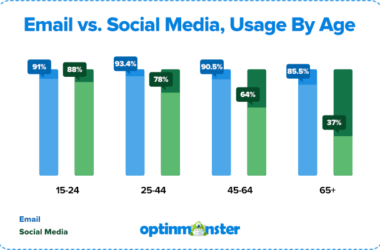Even in the face of a global pandemic, you can keep your entrepreneurial instincts alive and devote some time, effort, and energy into creating your own eCommerce business.
Adobe Digital Economy Index says that eCommerce sales are up by 25 percent in the USA. The rise predicts that this is the right moment to launch your eCommerce business. You can ride the wave to strengthen the foundation of your business.
Although there are restrictions on the trading of the majority of goods and services, the COVID-19 crisis has paved the path for some exciting business opportunities. All you need to do is craft a plan and start taking baby steps to build and secure a successful eCommerce store and using the right ecommerce platforms.
What does it take to start an eCommerce business?
Once you have an idea, the first step to starting an eCommerce business or any business is to register your domain name. This is crucial as it’ll be one of the key bits of your communication and your identity on the Internet.
Having a good domain name can go a long way in helping you build a brand and helping you market it. However, this is possible only when you have a unique and memorable domain name. The way to do that is to take care of the details such as your domain extension. Today, there are new, more industry-specific domain extensions available such as .store that are relevant to the eCommerce business. For example, a domain name such as www.pickgrocery.store immediately establishes that you can buy groceries on this website.
Mentioned below are five effective ways of starting an eCommerce business in the current scenario. Read on to know which online retail business model is best suited for you.
1. Design and sell your own unique products
If you have an idea for a product that has potential market demand, you can build your online business model from the ground up. You’ll need to reach out to manufacturers to see how you can develop your merchandise to start selling. For example, you can start by selling custom printed t-shirts.
Perhaps, though, you actually are the craftsperson of your unique products. Examples include if you’re into woodworking and can make knick-knacks to sell on eBay. Maybe you’re a talented sewing expert and are ready to promote your fashionable face masks through an online store.
Next, consider what kind of target audience might be interested in the products you’re either making yourself or having manufactured. What are their buying habits, and why would they be interested in your products? Are they more traditional and nostalgic, or witty and lighthearted?
Recognizing and defining your target audience will help you be more strategic with your branded marketing messages. This will be necessary when you’ll promote your business.
2. Focus on affiliate marketing to sell others’ products
Of course, not all online eCommerce businesses have to be about selling an original idea of your own. There are plenty of other manufacturers and retailers who need affiliate marketers such as yourself to sell products on their behalf.
Consider the following statistics about eCommerce and online sales in the United States. It suggests that already in the year 2020, the industry has generated over $514 billion in revenue. That’s almost a 6 percent market size increase from the previous year, and it’s not even June yet.
In other words, you have your pick of the lot when it comes to what kind of affiliate marketing niche you want to venture into. It can include everything from selling major clothing brands to your favorite tech gadgets to online courses.
For instance, check out This is Why I’m Broke which appears to be an eCommerce website selling unique gift items. However, it’s an affiliate website that earns commissions on selling products. You can start something like this right now.
3. Offer educational or consulting services
Instead of selling physical merchandise, you can start a successful eCommerce business by providing educational or consultancy services. One great thing about this business model is that it doesn’t rely on connecting with manufacturers or retailers at all.
This is an excellent option if you have sufficient knowledge of a particular subject. If you’re an expert in your professional field, for instance, you can design and create training videos to help others on their career paths. It’s like launching your online courses for the benefit of seekers.
Consulting services are another kind of eCommerce businesses that don’t sell hard products. If you’re passionate about helping others reach their goals in whatever industry you have experience in, this online business option might be ideal for you.
For example, if you are a financial advisor, you can start your website that helps people manage their finances proficiently, especially in times of crisis, like the current one.
4. Consider online grocery delivery; a booming service these days
Since social distancing is the norm during COVID-19, people are ordering all kinds of essentials online, including groceries, vegetables, dairy products, etc. It means your local community might benefit from having a specialized grocery delivery service.
If you have access to reliable transportation and can convince a couple of potential employees, try building this business. Moreover, it’s actually a great way to contribute to your community during these tough times.
Once you start delivering essentials, the business will witness exponential growth because the demand is really high, and the supply is not at its full potential. Besides launching a website, consider launching an online shopping app, and start taking orders via instant messaging services, such as WhatsApp.
5. Build a business around your creative skills
The last kind of eCommerce business model is the one where you sell your creative content. Do you have an ear for music or an eye for painting? Do you think you can create comedy videos and use them to sell merchandise on behalf of clients who sponsor you?
Building a creative eCommerce business is just like selling anything else. It’s going to be your responsibility to ensure you’re making the most of your talents and available resources in hand. For example, if you write blogs or provide social media marketing services, you can create a website and start selling your services.
Setting key performance indicators, analyzing metrics such as audience behavior, and placing orders are beneficial in tweaking your eCommerce model for better results.
The bottom line: start building your own eCommerce business today
There’s no need to let this global pandemic keep you from investing in your livelihood and entrepreneurial goals. It’s up to you, though, to gather the resources and do the real work to launch an eCommerce business and make it profitable. The sooner you make a move, the better will be the outcome.










